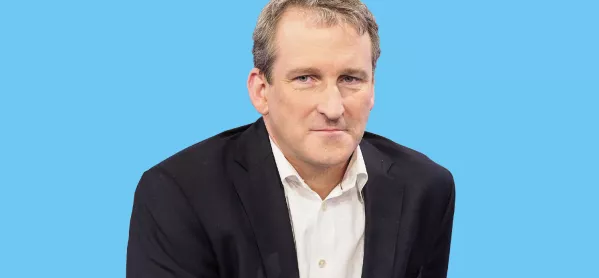Free mobile phone apps could be a vital part of improving disadvantaged children's education, according╠²to Damian Hinds.
The education secretary╠²revealed this morning that his╠²department is launching a competition to identify which mobile phone apps are the best at helping with childrenŌĆÖs early education at home.
ŌĆ£If our phones and apps can help us bank, shop, diet, exercise and figure out where we are, why not also help us with helping our children to develop their communication and reading?ŌĆØ he said.
The announcement was part of a speech on social mobility in which╠²Mr Hinds pledged╠²to by 2028╠²halve the number of children who start school without the speaking or reading skills they need.
More than a quarter of four- and five-year-olds (28 per cent) lack╠²the early communication and literacy skills expected by the end of Reception year, according to new╠².╠²
Mr Hinds, speaking to the Resolution Foundation thinktank, said that it was a╠²"persistent scandal╠²that children started school struggling to communicate and speak in full sentences".
He said that there were already apps with "helpful tips and imaginative ideas" for helping with childrenŌĆÖs early development.
'Making sure the disadvantaged don't miss out'
ŌĆ£But not all of these are widely known about and parents wonŌĆÖt know, of course, which are the best. ThatŌĆÖs why the department will be launching a competition to identify high-quality apps with the aim of making these free and easily accessible, making sure that disadvantaged families donŌĆÖt miss out,ŌĆØ Mr Hinds added.
As well as the apps competition, Mr╠²Hinds today announced that schools may bid for a share of ┬Ż30 million being put towards providing high-quality nursery places.
"WeŌĆÖve previously committed ┬Ż50 million to expand school-based nursery provision and╠²as part of this today╠²IŌĆÖm announcing╠²weŌĆÖre launching a capital bidding round of ┬Ż30 million to invite leading schools to come forward with projects to create new high-quality nursery places demonstrating innovative approaches to closing the gap for disadvantaged children," Mr Hinds╠²said.
He also said that money would be spent on training early years professionals.
"To ensure╠²provision is╠²high-quality, we must make sure we invest in people as well as in buildings and that is why we are investing ┬Ż20 million to train and develop early years professionals focusing on the most disadvantaged areas of the country so we have the expertise to support very young children in their early language and literacy skills,ŌĆØ the education secretary said.
It was early years minister Nadhim Zahawi who first revealed╠²in a letter to the ╠²earlier this month that the government was to╠²spend ┬Ż20 million on boosting early years teaching in disadvantaged areas ŌĆō rather than keeping to the original pledge in last year's╠²to carry out a study into╠²how╠²to increase the number of graduates working in early years in disadvantaged areas.
The U-turn prompted anger from prominent academics and early years organisations, who said it would╠²ŌĆ£deny thousands of disadvantaged children vital supportŌĆØ.
╠²





